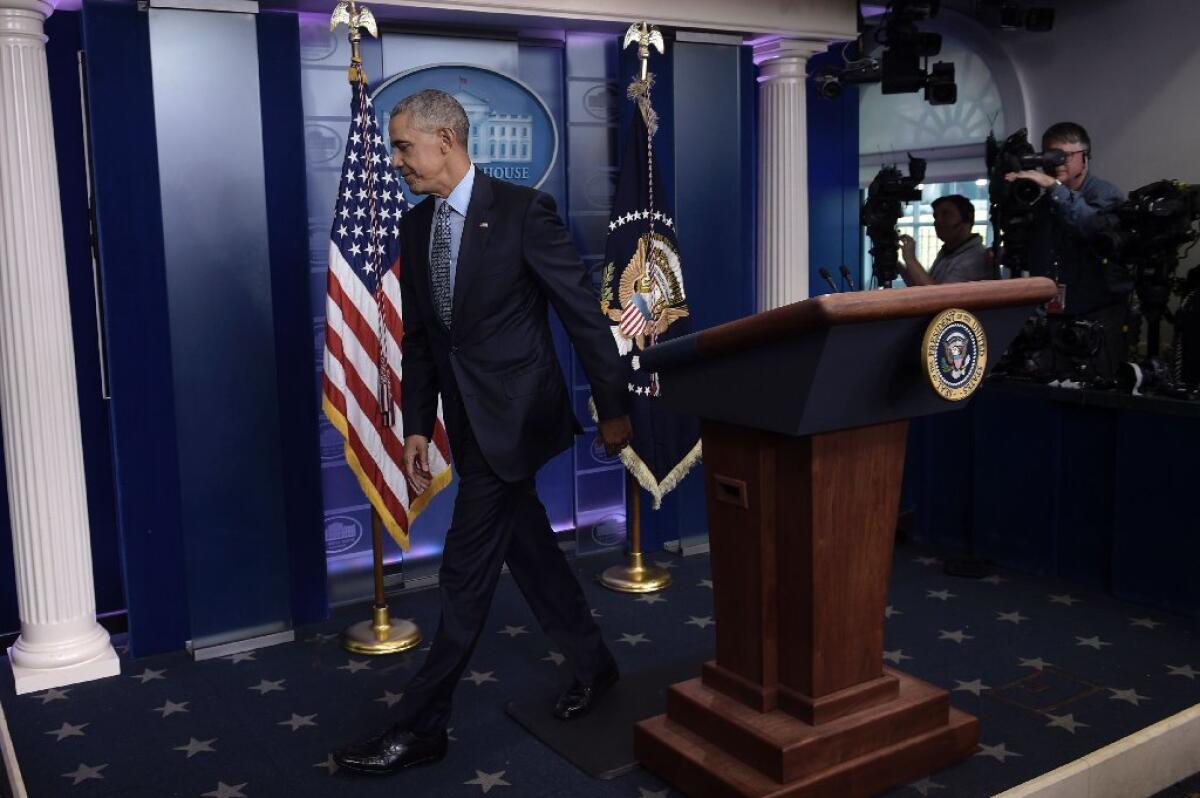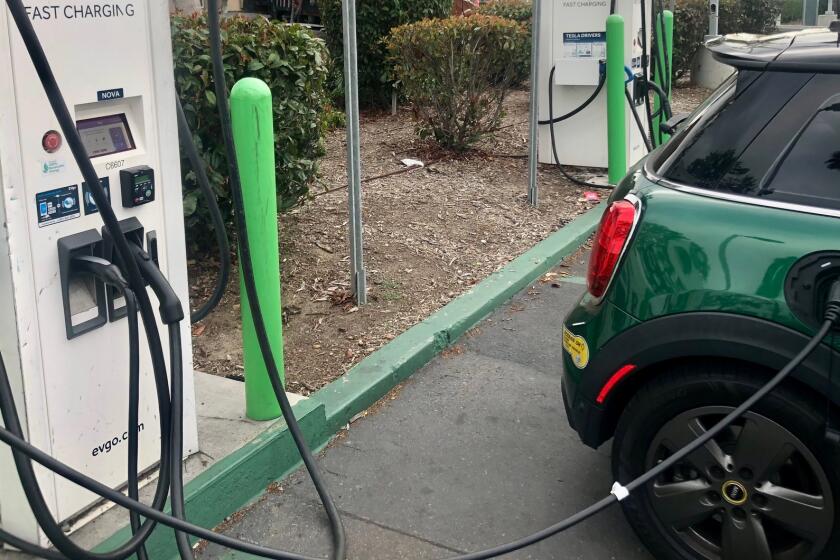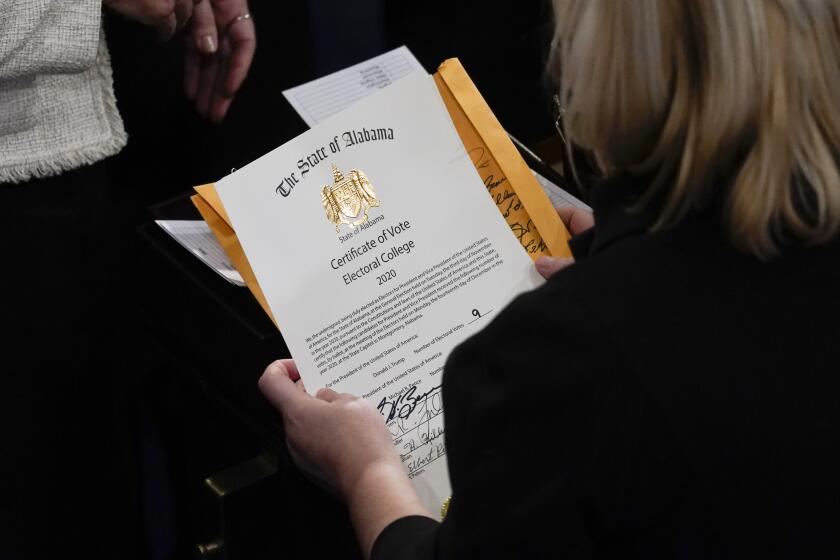Opinion: Obama (again) discreetly disses die-hard Democrats

President Obama leaves the White House briefing room after his final news conference on Wednesday.
President Obama had a lot of words of consolation for his admirers in his last news conference as president, and a few veiled words of warning for his successor. (He said that, while he wanted to be “quiet a little bit” after leaving office, he would speak out if he thought “our core values may be at stake.”)
He also stood up for a press corps that is worried about being chucked out of its quarters in the White House by the incoming Donald Trump administration, telling the reporters that “having you in this building has helped this place work better.”
I was most struck, however, by the way Obama distanced himself from die-hard Democrats unreconciled to Trump’s election.
First, he dismissed a reporter’s suggestion that there was a contradiction between his commutation of the sentence of Chelsea Manning, who supplied a trove of classified information to WikiLeaks, and his condemnation of Russia for hacking Democratic email accounts and (in the view of U.S. intelligence) relaying the embarrassing contents to WikiLeaks.
Obama noted that he hadn’t commented on WikiLeaks (“I don’t pay a lot of attention to [Julian] Assange’s tweets”). Yet it’s Assange who, second only to Vladimir Putin, is blamed by many Democrats for orchestrating Hillary Clinton’s defeat. (During the campaign, Brian Fallon, Clinton’s spokesman, tweeted: “WikiLeaks: You are no media organization. You are a propaganda arm of the Russian govt, running interference for their pet candidate, Trump.”)
Of course, even if WikiLeaks were culpable in Obama’s eyes for disseminating the secret military and diplomatic information downloaded by Manning, that wouldn’t undermine Obama’s justification for granting clemency to her — “that she took responsibility for her crime; that the sentence that she received was very ... disproportionate relative to what other leakers had received; and that she had served a significant amount of time, that it made sense to commute and not pardon her sentence.”
Still, Obama’s WikiLeaks answer was a departure from his party’s playbook.
The second, more blatant, disappointment for die-hard Democrats came when Obama was asked to comment on the decision of more than 50 Democratic House members to boycott Trump’s inauguration on Friday. (A sizable portion of the no-shows come from California.)
Obama could have said that he understood the boycotters’ disgust over Trump’s offensive comments or frightening policy proposals. Instead he said: “With respect to the inauguration, I’m not going to comment on those issues. All I’m going to say is I’m going to be there, as is Michelle.”
This was the second news conference in a row in which Obama discreetly dissed some of his fellow Democrats. At his meeting with reporters on Dec. 16, he refused to endorse the idea that Russian tampering had prevented a free and fair presidential election, defining a rigged election (much as Trump has done) in narrow terms of tampering with voting machines and referring to Trump as the “president-elect.”
He also declined at that news conference to “wade into” the issue of whether members of the electoral college should be bound to support the candidates who won the majority of their states’ votes — at a time when at least some Democrats were hoping that a few electors would revolt and deny Trump the presidency.
At Wednesday’s farewell news conference he was even less supportive of the refuseniks in his party. No doubt many Democrats still teared up at his valedictory, but they will miss him as the leader of the country not as a fierce partisan.
Follow the Opinion section on Twitter @latimesopinion and Facebook
More to Read
A cure for the common opinion
Get thought-provoking perspectives with our weekly newsletter.
You may occasionally receive promotional content from the Los Angeles Times.











